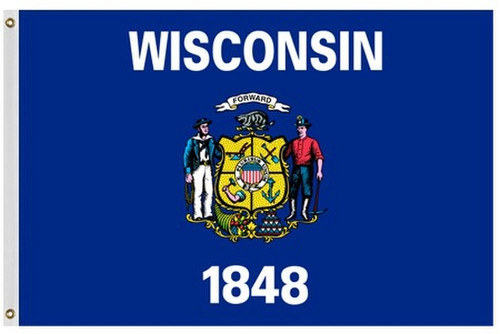Wisconsin Security Deposit Laws play a vital role in ensuring fair and transparent transactions between landlords and tenants. Understanding these laws is crucial for both parties to protect their rights and fulfill their responsibilities.
A security deposit refers to a sum of money paid by a tenant to a landlord at the beginning of the lease term. It serves as a form of financial protection for the landlord, covering any unpaid rent or damages caused by the tenant.
Rights and responsibilities of landlords and tenants are defined by Wisconsin law. Landlords must provide tenants with a written rental agreement that includes information about security deposits, including the amount, terms and conditions, and procedures for returning the deposit. Tenants, on the other hand, have the right to expect their security deposit to be handled properly and returned in a timely manner.
In 2024, several key updates have been made to Wisconsin Security Deposit Laws. These updates include changes in the security deposit amount, an increased timeframe for returning security deposits, additional requirements for itemized statements, and updates on the landlord’s right to withhold a security deposit.
To navigate Wisconsin Security Deposit Laws effectively, tenants should keep records and documentation of the rental agreement, payment receipts, and any communication with the landlord. It’s important for tenants to carefully review the terms and conditions related to security deposits and understand their rights in case of any disputes.
Similarly, landlords should familiarize themselves with these updated laws and ensure compliance. They should provide tenants with a clear and comprehensive lease agreement, including the necessary information regarding security deposits. Landlords should also maintain accurate records of the deposit and follow the proper procedures for returning or withholding the deposit.
Common issues and disputes related to Wisconsin Security Deposits include failure to return security deposits, deductions and itemized statements, and procedures for dispute resolution. Tenants should be aware of their rights and take appropriate steps if they encounter any problems. Landlords must follow the law and address any concerns or disputes in a fair and timely manner.
By understanding and adhering to Wisconsin Security Deposit Laws, both landlords and tenants can create a harmonious and mutually beneficial rental experience. It is essential to stay informed about any updates or changes in these laws to ensure compliance and protect the rights of all parties involved.
Key takeaways:
- Increased security deposit amounts: Wisconsin has implemented changes to security deposit laws in 2024, allowing landlords to request higher deposit amounts to protect against potential damages or unpaid rent.
- Extended timeframe for returning security deposits: Landlords now have a longer period to return security deposits, giving them more time to assess any damages and account for outstanding charges before issuing a refund.
- Stricter requirements for itemized statements: Wisconsin’s updated laws mandate that landlords provide more detailed itemized statements, specifying all deductions made from the security deposit to ensure transparency and accuracy.

Understanding Wisconsin Security Deposit Law
In Wisconsin, understanding the Wisconsin security deposit law is crucial for both landlords and tenants. Here are some key points to consider:
1. Limit: Landlords can charge a maximum of one month’s rent as a security deposit.
2. Interest: Landlords must provide a written statement of the interest rate on the deposit.
3. Return: Landlords have 21 days to return the deposit or provide an itemized list of deductions.
4. Deductions: Deductions can be made for unpaid rent, damages, or unpaid utility bills.
5. Disputes: If there is a dispute, tenants can take legal action in small claims court.
To ensure a smooth process, landlords should provide clear documentation, while tenants should document the condition of the property upon move-in and promptly report any issues.
Understanding Wisconsin‘s security deposit law will help both landlords and tenants navigate the rental process with confidence.
What is a Security Deposit?
A security deposit is a sum of money paid by a tenant to a landlord before moving into a rental property. It serves as financial protection for the landlord in case the tenant causes damage to the property or fails to fulfill their lease obligations. What is a security deposit? The amount of the security deposit is usually equal to one month’s rent but can vary depending on local laws and rental agreements. It is important for tenants to understand the purpose and rules surrounding security deposits to avoid any misunderstandings or disputes at the end of their lease agreement.
What are the Rights and Responsibilities of Landlords and Tenants?
The rights and responsibilities of landlords and tenants are crucial when dealing with security deposits in Wisconsin. What are the Rights and Responsibilities of Landlords and Tenants? Both parties have specific obligations that must be followed. Landlords are responsible for collecting and holding the security deposit, returning it within the specified timeframe, and providing an itemized statement of deductions. They also have the right to withhold the deposit for unpaid rent or damages. On the other hand, tenants have the right to receive a receipt for their deposit, a written explanation of any deductions, and the opportunity to dispute any improper deductions. By understanding their rights and responsibilities, landlords and tenants can ensure a fair and smooth process when it comes to security deposits.
Key Updates in Wisconsin Security Deposit Laws for 2024
Get ready to stay updated with the latest changes in Wisconsin security deposit laws for 2024! We’ll cover some key updates that you need to know. From changes in security deposit amount to an increased timeframe for returning deposits, as well as additional requirements for itemized statements and updates on the landlord’s right to withhold deposits. So, keep reading to stay informed and ensure you are up to date with these crucial changes.
Changes in Security Deposit Amount
| Year | Previous Security Deposit Amount | New Security Deposit Amount |
| 2019 | $500 | $600 |
| 2020 | $600 | $700 |
| 2021 | $700 | $800 |
| 2022 | $800 | $900 |
| 2023 | $900 | $1000 |
In Wisconsin, there have been Changes in Security Deposit Amount in 2024. These changes aim to ensure fair and reasonable protection for both landlords and tenants. The new security deposit amount has increased from $1000 to $1100. This adjustment reflects the current market conditions and costs associated with property maintenance and potential damages. It is crucial for both parties to be aware of and comply with these Changes in Security Deposit Amount to avoid any legal disputes or complications in the future.
Increased Timeframe for Returning Security Deposits
Landlords in Wisconsin are now required to adhere to an increased timeframe for returning security deposits to tenants. This change in Wisconsin security deposit laws aims to promote transparency and protect tenant rights. According to the updated regulations, landlords must return the security deposit within a specific time period, typically 21 to 45 days, after the lease ends and the tenant moves out. This extended timeframe allows landlords to thoroughly assess the property’s condition and deduct any necessary charges, while also providing tenants with prompt resolution and ensuring the timely return of their funds.
Additional Requirements for Itemized Statements
In Wisconsin security deposit laws, there are specific additional requirements for itemized statements. These requirements demand a comprehensive breakdown of any deductions made from the security deposit. The itemized statement must include the reasons for each deduction, along with any supporting documentation such as receipts or invoices. Furthermore, landlords are obligated to provide the tenant with a copy of the itemized statement within a designated timeframe, usually within 21 days after the tenant moves out. Failure on the landlord’s part to meet these requirements may lead to penalties, including forfeiting the right to withhold any portion of the security deposit.
Updates on Landlord’s Right to Withhold Security Deposit
Under Wisconsin security deposit laws in 2024, there have been updates on a landlord’s right to withhold a security deposit. These updates, known as “Updates on Landlord’s Right to Withhold Security Deposit,” aim to protect tenants’ rights and ensure fair treatment in the handling of security deposits. Landlords now have stricter guidelines for the circumstances in which they can withhold a security deposit. They must provide detailed documentation and evidence to justify any deductions made. These updates promote transparency and accountability in the landlord-tenant relationship and help prevent unfair or arbitrary withholding of security deposits. It is important for both landlords and tenants to familiarize themselves with these updates to ensure compliance with the law and avoid disputes.
How to Navigate Wisconsin Security Deposit Laws
Navigating Wisconsin Security Deposit Laws can be a tricky endeavor, but fear not – we’ve got you covered! In this section, we’ll provide you with valuable insights on how to navigate these laws like a pro. Whether you’re a tenant or a landlord, we’ve got tips and advice tailored to your specific needs. From understanding your rights as a tenant to maximizing your protection as a landlord, we’ll empower you with the knowledge you need to confidently navigate Wisconsin’s ever-evolving security deposit regulations.
Tips for Tenants
Tenants in Wisconsin should keep these tips in mind when it comes to dealing with security deposits.
- Document the condition: Take photos or videos of the property before moving in and keep a record of any damages.
- Read the lease agreement: Understand the terms related to the security deposit, including any allowable deductions.
- Communicate with the landlord: Notify them of any repairs needed and address any concerns about the deposit.
- Provide proper notice: Follow the required procedures for giving notice of moving out to ensure a smooth return of the security deposit.
- Keep copies of everything: Maintain a copy of the lease agreement, move-in checklist, and any communication with the landlord regarding the deposit.
Tips for Landlords
- Being a landlord requires careful management and adherence to Wisconsin Security Deposit Laws. Here are some helpful tips for landlords to navigate these laws successfully:
- Know the law: Familiarize yourself with the specific guidelines and requirements outlined in the Wisconsin Security Deposit Laws.
- Document thoroughly: Keep detailed records of the condition of the rental unit before and after a tenant moves in or out, including photographs or videos.
- Communicate clearly: Clearly communicate the terms and conditions regarding the security deposit in the lease agreement, including the amount, payment method, and any deductions that may be made.
- Provide itemized statements: When returning the security deposit, provide a detailed itemized statement explaining any deductions made and include copies of supporting documentation, such as receipts or invoices.
- Return the deposit promptly: Return the security deposit within the required timeframe specified by the law, which has been increased in Wisconsin for 2024.
- Follow proper procedures: If there is a dispute regarding the security deposit, follow the proper legal procedures for resolving the issue, such as using mediation or small claims court if necessary.
Common Issues and Disputes related to Wisconsin Security Deposits
Dealing with security deposit issues in Wisconsin? This section takes a deep dive into the most common disputes that arise when it comes to security deposits. From the failure to return deposits to deductions and itemized statements, we’ll uncover the ins and outs of these challenges. We’ll explore the procedures for dispute resolution, offering valuable insights to help you navigate through any conflicts that may arise. Get ready to arm yourself with the knowledge you need to protect your rights as a tenant or landlord in Wisconsin.
Failure to Return Security Deposits
Failing to return security deposits can lead to conflicts between landlords and tenants. To avoid this issue, it is important to address the issue properly.
- Document the condition of the rental property before moving in and take photos as evidence to prevent any future conflicts regarding the return of the security deposit.
- Provide the landlord with your forwarding address in writing once you decide to move out. This step will ensure that the landlord has the necessary information to return the security deposit.
- Request a written, itemized list of deductions from your security deposit. This will help you understand any deductions made and prevent misunderstandings.
- Know your state’s laws regarding the timeframe for returning security deposits. Being aware of the legal obligations will help ensure that the landlord returns the deposit within the specified time frame.
Pro-tip: Communicate openly and honestly with your landlord to address any concerns or discrepancies regarding the return of your security deposit. Failure to return security deposits can strain the landlord-tenant relationship, so it is important to maintain effective communication throughout the process.
Deductions and Itemized Statements
Deductions and itemized statements are crucial aspects of understanding Wisconsin security deposit laws. Landlords are required to provide tenants with an itemized statement of any deductions made from their security deposit, ensuring transparency and accountability in the handling of security deposits. This statement should include a detailed breakdown of the expenses, such as repairs, cleaning, or unpaid rent, along with their corresponding costs. Landlords must provide receipts or estimates for any deductions above $125 to comply with Wisconsin’s security deposit laws. Failure to provide a proper itemized statement within 21 days may result in the landlord forfeiting their right to withhold any portion of the security deposit.
In a true story, a tenant in Wisconsin received their security deposit back without any deductions. The landlord provided a clear and thorough itemized statement showing that the property was left in good condition, eliminating the need for any deductions. The tenant appreciated the landlord’s professionalism and transparency, which made the whole process of moving out stress-free. Both parties were satisfied, and it served as an example of how adhering to Wisconsin’s security deposit laws can lead to smooth and fair transactions.
Procedures for Dispute Resolution
- Procedures for dispute resolution play a crucial role in resolving conflicts related to security deposits. Here are some steps to navigate the dispute resolution process:
- Communicate: Begin by discussing the issue with the other party involved in a calm and professional manner.
- Document: Keep records of all communication, including emails, letters, and text messages.
- Mediation: Consider mediation as a voluntary and confidential process to reach a mutually agreeable solution.
- Arbitration: If mediation fails, arbitration can be pursued, where an impartial third party makes a binding decision.
- Small Claims Court: As a last resort, filing a lawsuit in small claims court may be necessary.
Fact: In Wisconsin, small claims court disputes involving security deposits are typically resolved quickly, with judgments typically issued within a few weeks.
Some Facts About Wisconsin Security Deposit Laws: What’s new in 2024:
- ✅ A security deposit is a sum of money paid by a tenant at the beginning of their lease to cover damages, unpaid utilities, or unpaid rent.
- ✅ Wisconsin law (WI Stat § 704.28) governs security deposits and outlines rules for landlords.
- ✅ Landlords in Wisconsin can demand an uncapped security deposit from renters.
- ✅ Landlords can also request an additional pet deposit, but they cannot discriminate against renters with service animals.
- ✅ Before collecting a security deposit, landlords in Wisconsin must complete five steps, including providing a rental agreement, informing the tenant of any building code violations, and notifying them of any uninhabitable conditions.
Frequently Asked Questions
1. Can landlords in Wisconsin charge unpaid utilities against a tenant’s security deposit?
Yes, landlords in Wisconsin are allowed to make deductions from a tenant’s security deposit for unpaid utilities.
2. What should landlords provide as proof of deductions from a security deposit?
Landlords must provide tenants with an itemized list of charges or damages if they withhold any portion of the security deposit refund.
3. Are landlords required to issue receipts for security deposit payments?
Wisconsin statutes do not require landlords to issue receipts for security deposit payments. However, it is recommended that landlords provide receipts as a good practice.
4. Can landlords use a tenant’s last month’s rent as part of the security deposit?
Yes, landlords in Wisconsin are allowed to collect a last month’s rent payment as part of the security deposit.
5. Are pet fees or deposits allowed in Wisconsin residential rentals?
Yes, landlords in Wisconsin can request additional pet fees or deposits from tenants. However, they cannot discriminate against renters with service animals.
6. What deductions are landlords allowed to make from a security deposit in Wisconsin?
Landlords in Wisconsin can make deductions from a tenant’s security deposit for unpaid rent, damages beyond normal wear and tear, unpaid utilities, municipal fines, and nonstandard rental provisions. However, the cost of repairing damages or losses considered normal wear and tear cannot be deducted.
Dave is a seasoned real estate investor with over 12 years of experience in the industry. Specializing in single-family residential real estate, David’s strategic approach combines market analysis, financial acumen, and a deep understanding of urban development trends to maximize investment returns.










